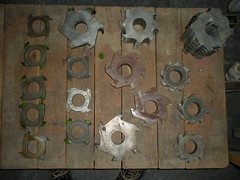Any type of surgery, whether major or minor, can often vary greatly in price depending on a number of factors. Many surgical procedures will be covered, at least in part, by your medical insurance, but unfortunately dental implants are usually not among the procedures covered under regular insurance. This may make it a necessity for the patient to do some serious shopping around and to have all of the facts covered before entering into an agreement for a dental implant procedures.

Here are some of the factors that may end up affecting the cost of the procedure in one way or another and how to give yourself at least a ball park estimate of what a dental implant may end up costing you.
Tooth Implant Insurance
Where YouLive
The place you make your home doesn't necessarily sound like something that could have an effect on the general cost of a surgical procedure, but it most certainly does. The cost of almost anything in our lives is affected by our place of residence: homes, milk, gas and taxes all vary depending upon which area of the country you reside and though it may not seem fair the same holds true for surgeries. If you live in New York City or Los Angeles, you will most likely be paying more for your dental implant than someone who lives in Knoxville or Boise.
The Difficulty of the Procedure
This is a part of the equation that's very hard to determine, cost wise, before actually seeing the oral care specialist that's going to perform the procedure. There arethings that can make the overall procedure more difficult and time consuming that will ultimately run up the price-if there is a good deal of bone and/or gum restoration work that needs to accompany the implant procedure itself, the cost will likely be substantially higher than the average.
The Location of the Implant (which tooth)
Some areas of the mouth are much more difficult to work on than others. The cost for a canine will be different from the cost of an incisor and that of a molar. The more difficult the area of the mouth is to work on, the more time it will require to do the procedure and the more labor it will involve-so in turn the price will go up.
Before entering into an agreement to have a dental implant procedure, it's important that you understand everything about what one doctor's price includes as compared to anothers ' so there are no surprises once the bill comes. People often obtain a quote for just the implant procedure itself, but fail to realize that the extra charges are piling up throughout the process.
Get detailed quotes from each implant dentist Toronto that you are considering having the procedure performed by, in writing, for everything that will be involved in the process, including: the implant surgery itself, x-rays, anesthesia, subsequent visits and the cost of the crown to go on the implant. By doing this you will ensure two things-that you'll be getting the best price for the work being performed and that you won't keel overonce the bill arrives.
On a very, very wide plane-the average dental implant can cost anywhere from $ 1500.00 all the way up to $ 6000.00 or more for just the procedure and exponentially more depending upon what else will be involved. Though it's good to shop around to make sure that you are getting a reasonable price for the services being performed, make sure you aren't "sacrificing quality to save money-be one hundred percent certain that the procedure is being performed by a qualified professional with plenty of experience in the type of work that you need done.
How Much Do Dental Implants Cost on Average For Tooth?








